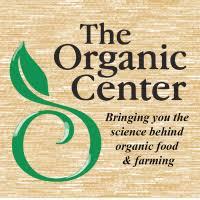
Biodiversity is a term used to refer to the number of species in one region or ecosystem, and for the first time, scientists have developed a new tool that assesses the value of converting farmland to organic when factoring its impact on both crop yield and biodiversity, published online in Ecology Letters .
“This tool can help identify the best strategy of land use intensity,” said Dr Yi Zou, the leader of the study and an ecology researcher at Xi’an Jiaotong-Liverpool University.
The study brought together a diverse team of scientists across China and Europe. Their results show the possibility for large gains in biodiversity at the cost of little or no yield loss when converting from conventional to organic farming in non-cereal crops, indicating that organic farming can be a desirable option for maximizing biodiversity in these farming systems.
More simply, their takeaway is that organic farming offers roughly a 25% gain in biodiversity with a similar cost in yield decline: these values can be higher for plants and lower for birds in cereal crops.
Because lower yields are often the case for organic in comparison to conventional, this sparks a debate that more land is required to produce the same amount of food, with an increase in acres under organic production resulting in more natural habitat needing to be converted, canceling its benefits to biodiversity.
LThe study can be read at this LINK
Source: The Organic Center



